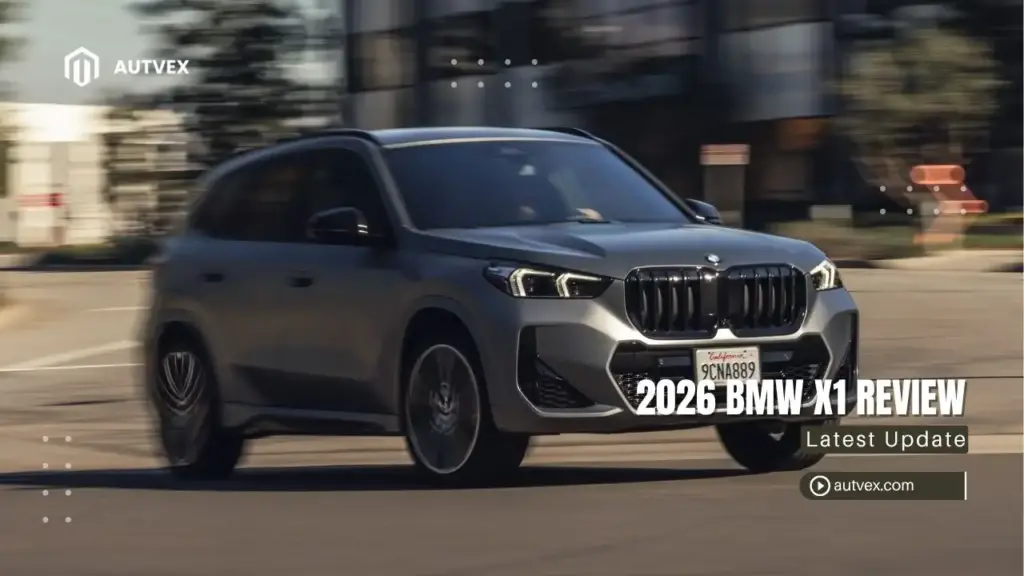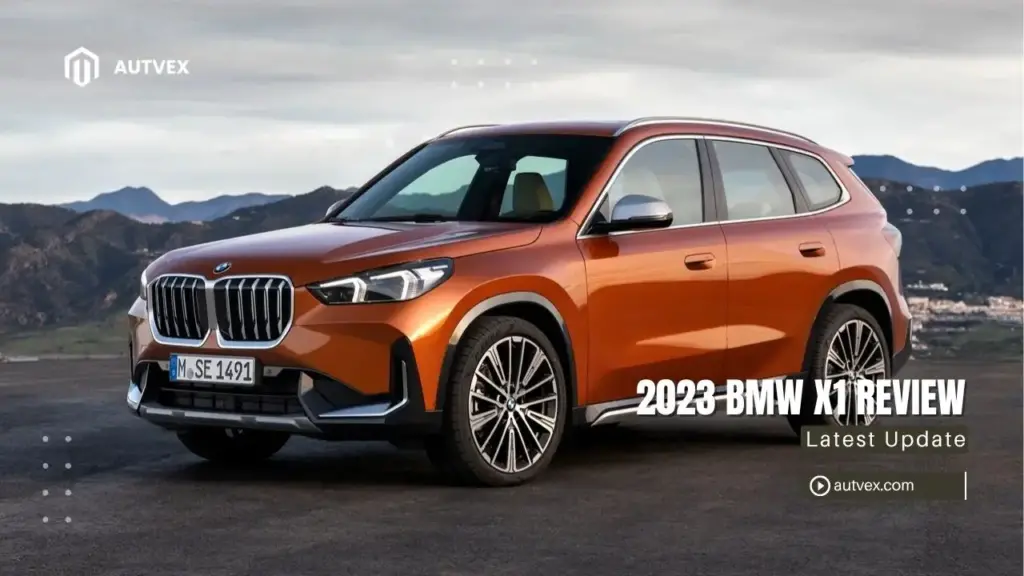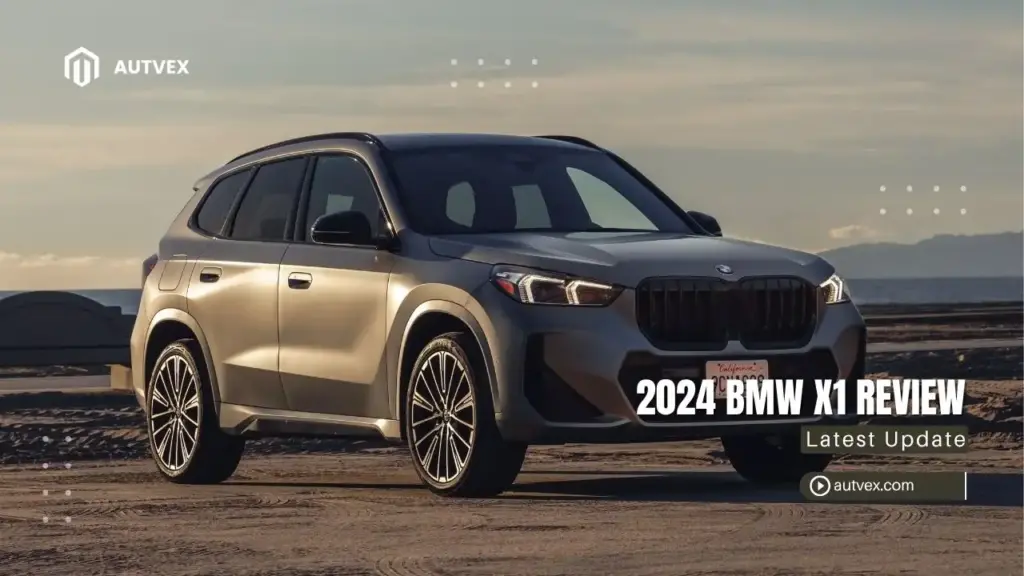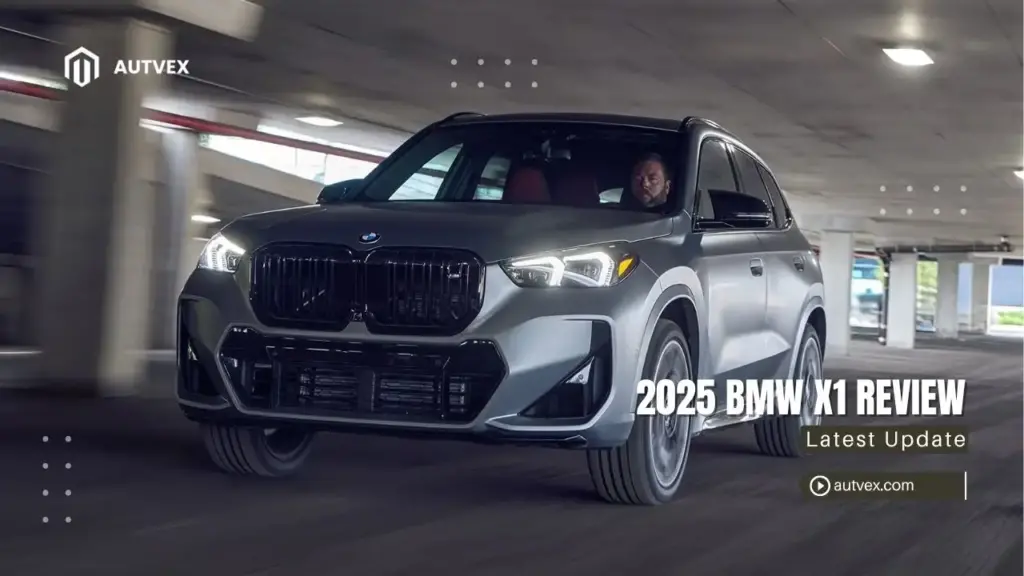You may also like:
The 2026 BMW X1 is BMW’s most affordable SUV and one of the best subcompact luxury crossovers available, offering sharp handling, a tech-forward interior, and now more standard features than ever[1]. Starting at $42,800 for the xDrive28i or $51,900 for the performance-tuned M35i, this year adds wireless charging, Comfort Access keyless entry, and auto-dimming mirrors as standard equipment[2]. Car and Driver ranks it second among subcompact luxury SUVs, praising its crisp handling and practical, modern interior[1].
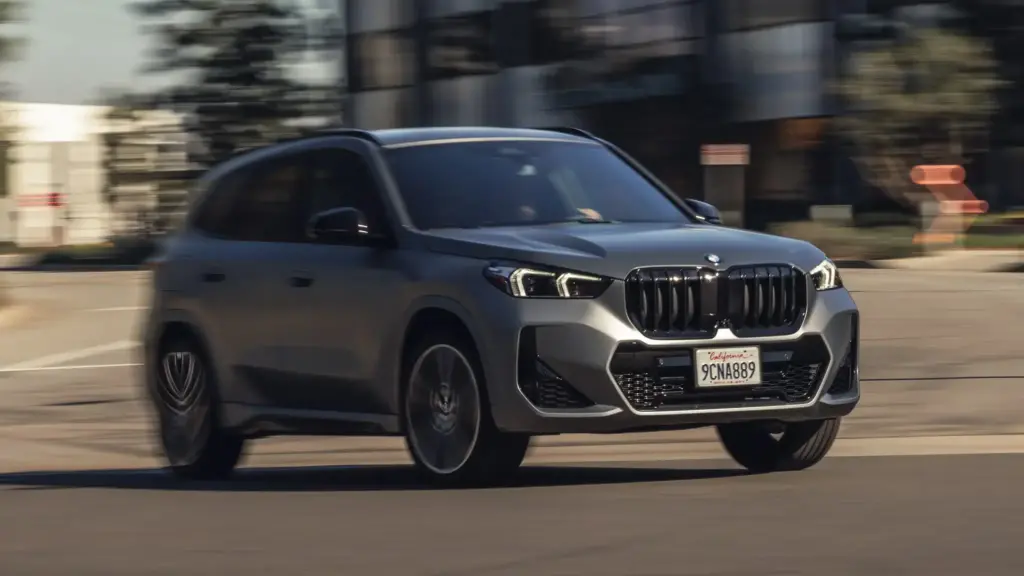
Overview: What’s New for 2026
BMW added several meaningful upgrades to the X1 for 2026, making this model year the best-equipped version of the current generation[2]. The Wireless Charging Pad, Auto-Dimming Rearview Mirror, and Comfort Access keyless entry are now standard across the lineup—features that previously required optional packages[2]. This change makes the $2,000 price increase from last year more palatable[2].
Four new exterior colors join the palette: Night Dusk Blue, Frozen Portimao Blue, Dune Grey, and Vegas Red[1]. Otherwise, the 2026 X1 carries over mechanically unchanged from the third generation introduced in 2023[3]. For those exploring MSRP definitions, the X1’s $42,800 starting price positions it at the affordable end of BMW’s lineup.
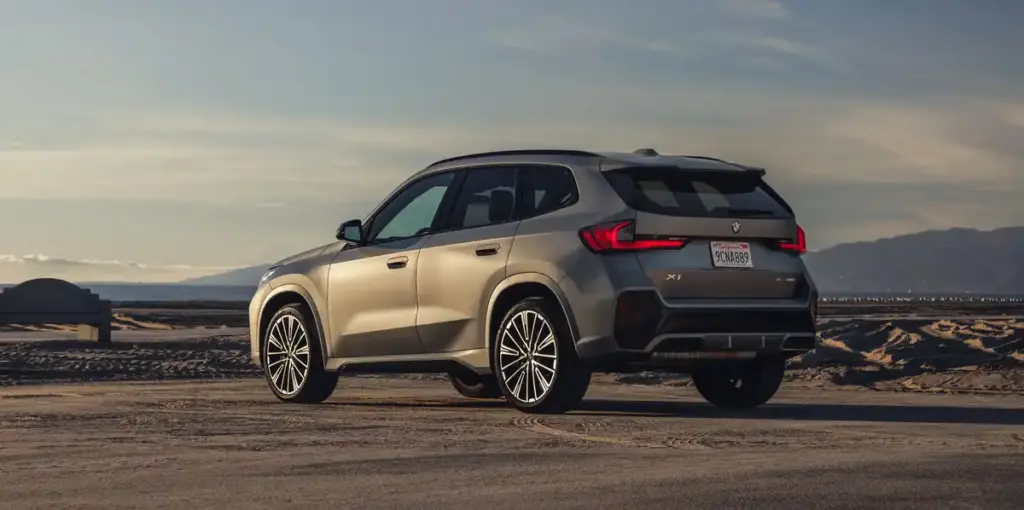
2026 BMW X1 Pricing
| Trim | MSRP | Invoice Price |
|---|---|---|
| xDrive28i | $42,800 | $40,738 |
| M35i xDrive | $51,900 | $49,540 |
Prices exclude destination (~$1,175). All models include standard AWD[3][4]
Edmunds reports the average market price for a new BMW X1 is approximately 3% below MSRP, offering savings of $1,553 to $1,826 depending on trim level[3]. Special financing is available with promotional APR rates as low as 0.9% for 36 and 48-month terms[3]. Leasing the xDrive28i starts around $586 per month with $3,088 due at signing for 36 months[3]. Understanding BMW maintenance costs helps budget for long-term ownership.
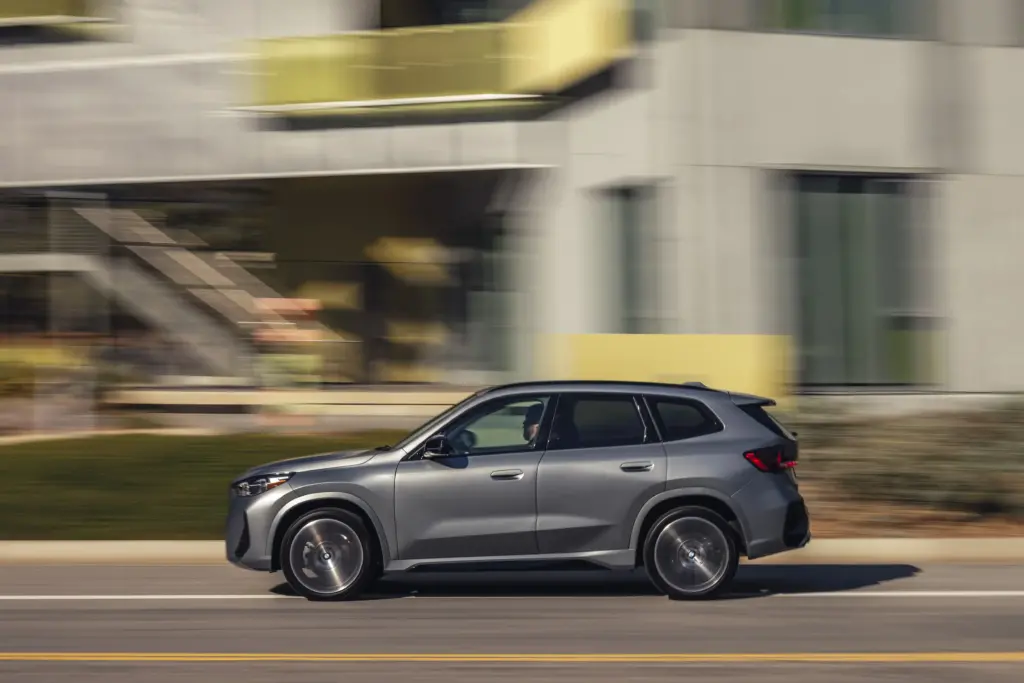
Performance & Driving Experience
xDrive28i
The xDrive28i is powered by a turbocharged 2.0-liter four-cylinder engine producing 241 hp and 295 lb-ft of torque[1]. All-wheel drive and a seven-speed dual-clutch automatic transmission are standard[1]. Car and Driver tested the xDrive28i at 5.4 seconds to 60 mph—quick for this segment[1].
The suspension is tuned for athletic handling, making the X1 a fun companion for twisty roads[1]. However, some turbo lag is noticeable during highway passing maneuvers[1]. Edmunds noted the engine stop-start system can be rough and intrusive at city speeds[3].
M35i xDrive
The performance-oriented M35i features the same 2.0-liter turbo-four tuned to produce 312 hp and 295 lb-ft of torque[4]. It accelerates to 60 mph in just 4.7 seconds at Car and Driver’s test track—significantly quicker than the base model[1]. Standard equipment includes adaptive dampers and upgraded brakes for sharper handling[1].
However, Car and Driver found the M35i’s ride too harsh for everyday driving, with occasional engine surging that can spoil routine situations[1]. Compare with our BMW X1 model page.
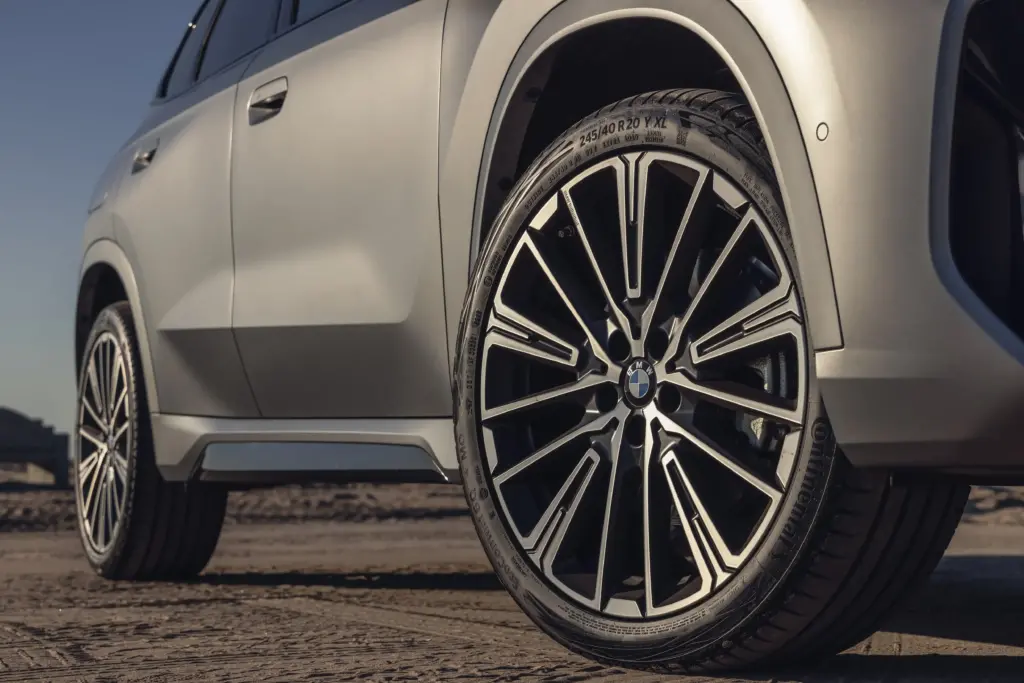
Specifications
Dimensions
| Specification | Value |
|---|---|
| Length | 177.2-177.4 in |
| Width | 72.6 in (82.8 in with mirrors) |
| Height | 64.6 in |
| Wheelbase | 106.0 in |
| Cargo Volume (rear up) | 26 cu ft |
| Cargo Volume (max) | 57 cu ft |
| Ground Clearance | 8.1 in (M35i) |
| Curb Weight | 3,762-3,809 lbs |
Powertrain Options
| Spec | xDrive28i | M35i |
|---|---|---|
| Engine | 2.0L Turbo I-4 | 2.0L Turbo I-4 |
| Horsepower | 241 hp @ 5,750 rpm | 312 hp @ 6,500 rpm |
| Torque | 295 lb-ft @ 1,500 rpm | 295 lb-ft @ 2,000 rpm |
| Transmission | 7-speed DCT | 7-speed DCT |
| Drivetrain | AWD | AWD |
| 0-60 mph | 5.4 sec | 4.7 sec |
| Top Speed | 130 mph | 155 mph |
Fuel Economy (EPA)
| Trim | City | Highway | Combined |
|---|---|---|---|
| xDrive28i | 25 mpg | 34 mpg | 28 mpg |
| M35i | 24 mpg | 32 mpg | 27 mpg |
In Car and Driver’s real-world 75-mph highway test, the M35i exceeded its EPA estimate considerably, delivering 34 mpg[1]. The fuel tank holds 14.3 gallons, yielding a highway range of approximately 480 miles with the M35i[1]. Learn more about BMW X5 features.
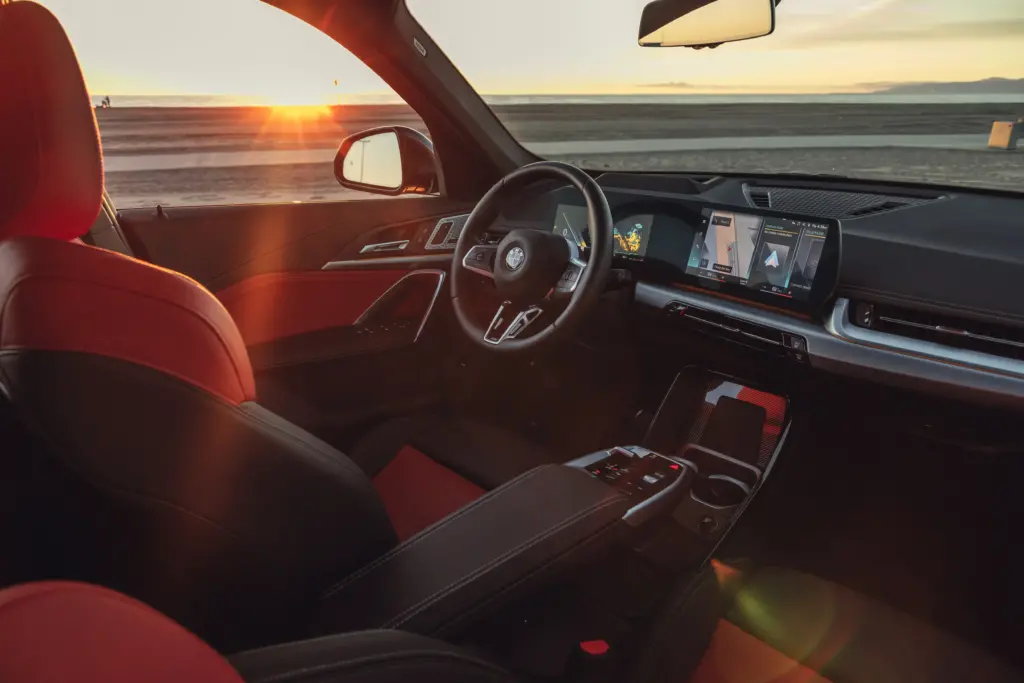
Interior & Technology
The X1 sports a modern interior design with a minimalist shift lever, floating center console, and all-digital dashboard[1]. The centerpiece is BMW’s Curved Display—a single glass panel spanning two-thirds of the dash containing both a gauge display and 10.25-inch infotainment screen running iDrive 9 software[1]. Textured metal speaker grilles and available Eucalyptus open-pore wood trim give the cabin a designer feel[1].
Standard Equipment (2026):
- Wireless Apple CarPlay and Android Auto
- SiriusXM satellite radio
- Wireless smartphone charging pad (new for 2026)
- Comfort Access keyless entry (new for 2026)
- Auto-dimming mirrors (new for 2026)
- Dual-zone automatic climate control
- Heated front seats
- Power liftgate
- 18-inch alloy wheels[2][3]
Premium Package Adds:
- Head-up display
- Navigation system
- Harman Kardon stereo
- Panoramic sunroof
- 360-degree exterior camera system[1]
Edmunds noted that BMW routes all climate controls through the touchscreen interface, which looks sleek but can be more distracting than traditional physical buttons[3]. Learn about BMW Tesla Supercharger compatibility.
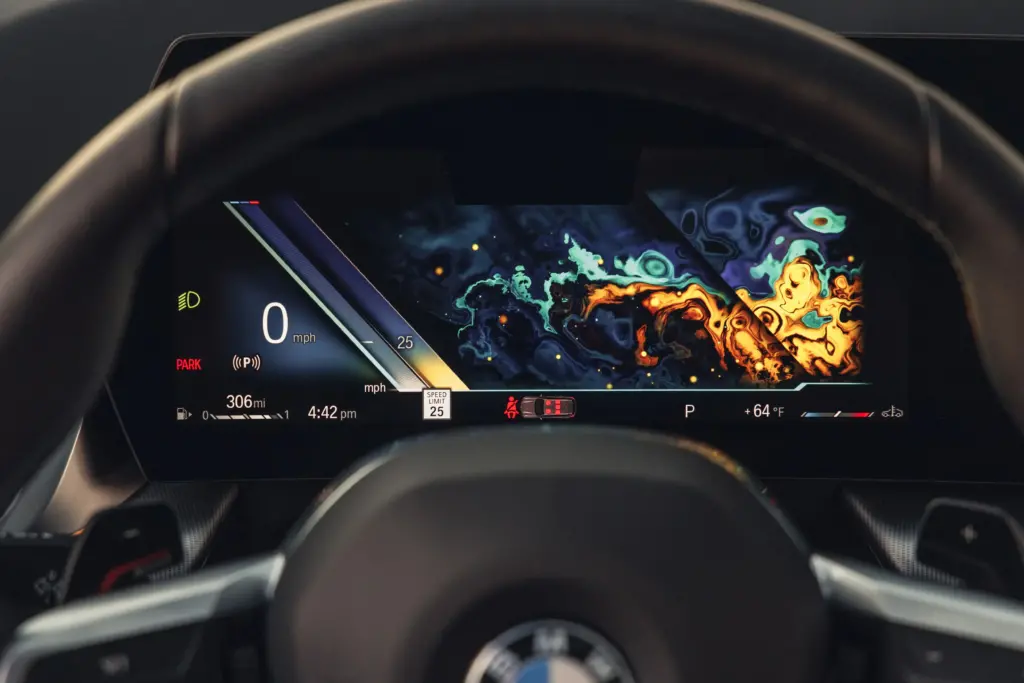
Safety Features
BMW expanded standard safety equipment for 2026. Features previously requiring optional packages are now included[5]:
Standard Safety Features:
- Automated emergency braking with pedestrian/cyclist detection
- Blind-spot monitoring with rear cross-traffic alert
- Lane departure warning
- Front and rear parking sensors
- Automatic high-beam headlights
- Safe exit warning[1][5]
Available:
- Adaptive cruise control with lane centering
- Self-parking feature[1]
Edmunds noted that adaptive cruise control is not standard on any trim—a significant omission for a luxury SUV[3].
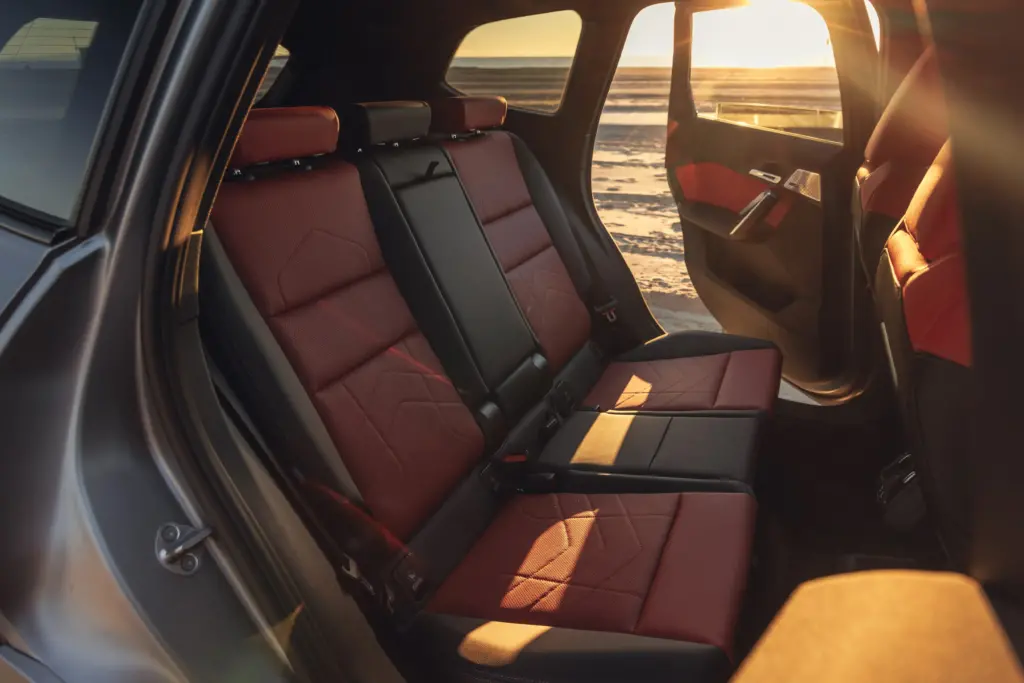
Competitors Compared
| Vehicle | Starting MSRP | Horsepower | Combined MPG |
|---|---|---|---|
| 2026 BMW X1 | $42,800 | 241 hp | 28 mpg |
| 2026 Volvo XC40 | $41,195 | 247 hp | 28 mpg |
| 2026 Audi Q3 | $44,995 | 201 hp | 26 mpg |
| 2026 Mercedes-Benz GLB | $44,950 | 221 hp | 27 mpg |
| 2026 Mini Countryman | $36,075 | 189 hp | 30 mpg |
The X1 is now on the pricier side for the segment but still undercuts the Mercedes GLB and matches the 2026 Audi Q3[2]. The GLB offers more passenger space thanks to its boxier shape but isn’t as luxurious or refined as the X1[3]. The Volvo XC40 stands out for distinctive design and comfortable seating[3]. Visit our BMW X2 model page.
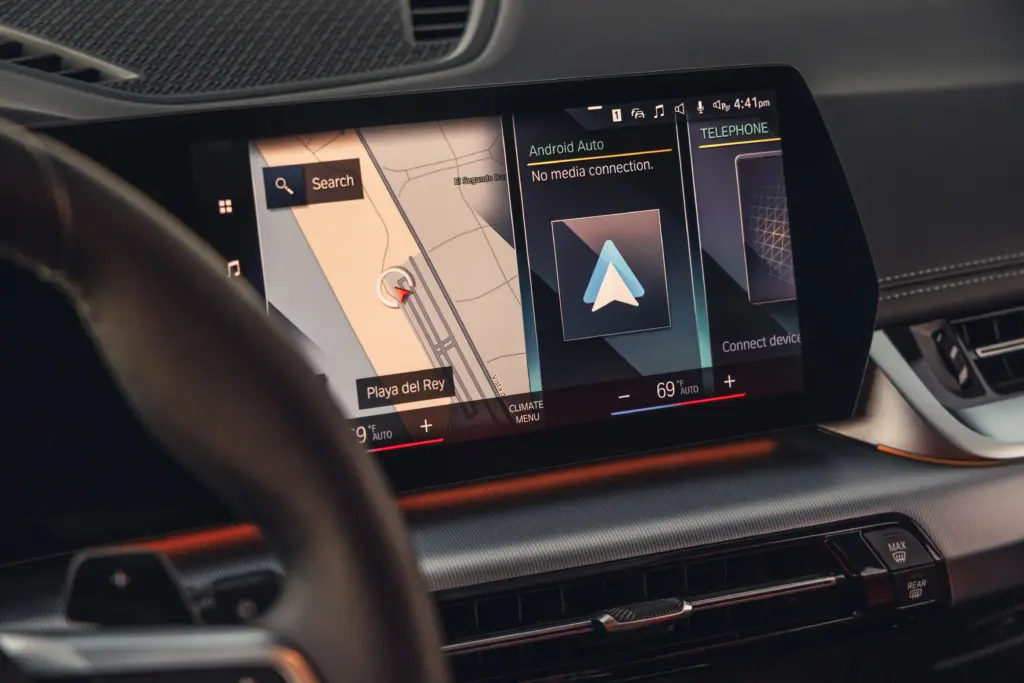
Pros and Cons
Pros
- Sharp handling and engaging driving dynamics[1]
- Quick acceleration (5.4 sec 0-60 in xDrive28i)[1]
- Tech-forward interior with Curved Display[3]
- Improved standard equipment for 2026[2]
- Spacious for a subcompact (26-57 cu ft cargo)[1]
- 3-year complimentary maintenance included[1]
Cons
- Turbo lag during highway passing[1]
- Rough engine stop-start system[3]
- M35i rides too harshly for daily use[1]
- Adaptive cruise control not standard[3]
- Climate controls require touchscreen[3]
- Expensive option packages[3]
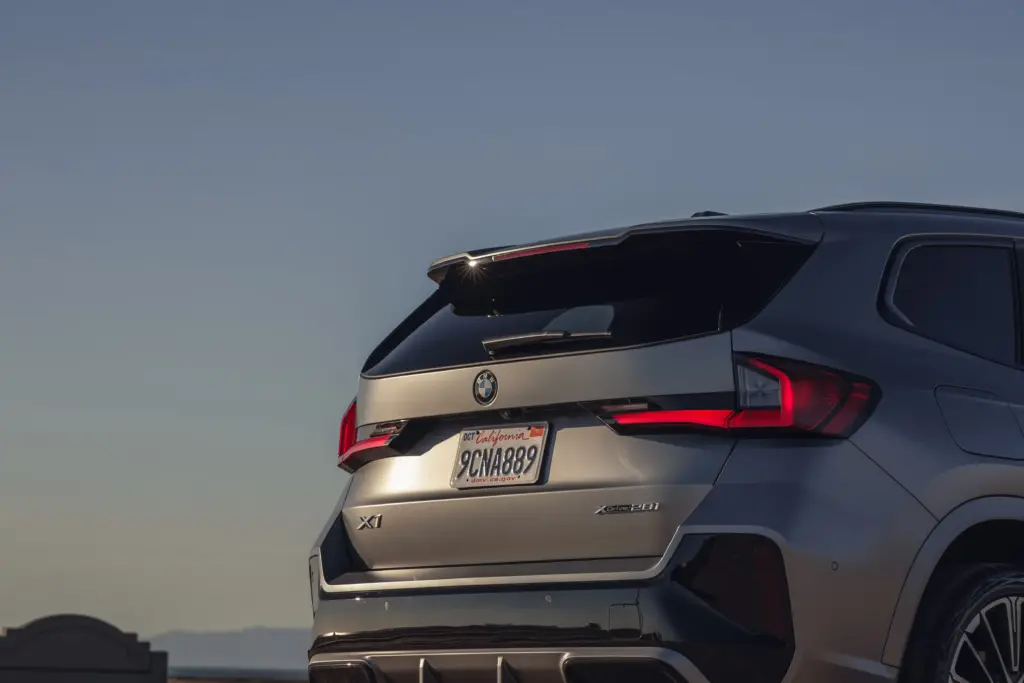
Final Verdict: Who Should Buy the 2026 BMW X1?
Choose the xDrive28i if you:
- Want BMW driving dynamics at the lowest price
- Prefer a comfortable everyday ride
- Plan to add the Premium package for tech features
Choose the M35i if you:
- Prioritize acceleration (4.7-sec 0-60)
- Enjoy spirited driving on weekends
- Can tolerate a firmer ride
The 2026 BMW X1 remains one of the best subcompact luxury SUVs despite its price increase[1]. Car and Driver prefers the standard xDrive28i for its better ride quality and recommends adding the Premium package for the head-up display, panoramic sunroof, and 360-degree camera[1]. With 3% below-MSRP pricing available and special financing rates, the 2026 X1 delivers excellent value for BMW’s entry-level offering[3].
Frequently Asked Questions
How much does a 2026 BMW X1 cost?
Is the 2026 BMW X1 reliable?
What’s different about the 2026 BMW X1?
References
- Car and Driver. (2025). 2026 BMW X1 Review, Pricing, and Specs. https://www.caranddriver.com/bmw/x1
- BMWBLOG. (2025). 2026 BMW X1 Gains More Standard Features and New Colors. https://www.bmwblog.com/2025/10/04/bmw-x1-buyers-guide-2026/
- Edmunds. (2025). 2026 BMW X1 Prices, Reviews, and Pictures. https://www.edmunds.com/bmw/x1/
- Kelley Blue Book. (2025). 2026 BMW X1 Specs, Features & Options. https://www.kbb.com/bmw/x1/2026/specs/
- New BMW USA. (2025). 2026 BMW X1 Changes, Pictures.
2026 BMW X1 Changes, Pictures, Pictures

I am a senior automotive analyst at Autvex. Expert vehicle evaluations, in-depth reviews, and objective analysis helping readers make informed automotive decisions with years of industry experience.

